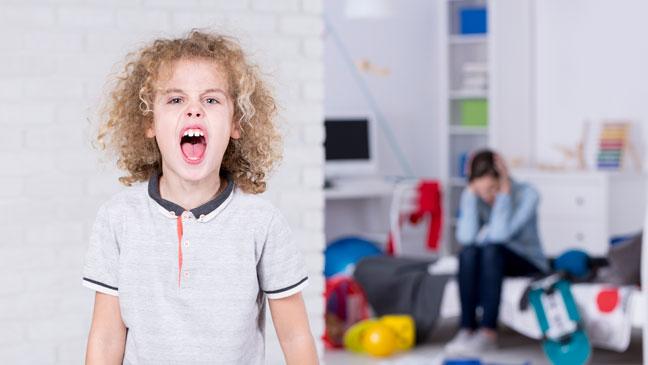What is ADHD?
ADHD- short for Attention deficit hyperactivity disorder does not mean a child is lacking attention as most people tend to believe. Rather it implies that the child has a hard time regulating their attention. A few examples include but not limited to;
- A child not paying attention when they are required to do so. Eg. classroom
- A child being fixated on something when their attention is needed elsewhere. Eg. Video game fixation
Additional behavioral challenges associated with ADHD include difficultly staying in one place for a long time, waiting their turn, sharing with their peers, temper tantrums and emotional outbursts.
 Simply Misbehavior or ADHD?
Simply Misbehavior or ADHD?
At first glance it can be difficult to distinguish between a child who has ADHD and a non ADHD child who is simply acting out. However, though the presentation may be similar the intention and source of the behavior is very different. A child who does not have ADHD – and decides to misbehave has more control over his mental faculties, emotions, and his behavior. A child who has ADHD has much more working against them- primarily executive functioning issues which include-difficulty paying attention, poor working memory, trouble managing emotions, and difficulty shifting focus from one task to another. With that said, parenting these 2 types of children should be very different. It’s not the same at all and unfortunately many parents are not aware of this.
Traditional parenting programs fail to take into account the complexity of a child with ADHD. As a result, many parents who take generic parenting programs have very little success. Parenting in and of itself can be very challenging, and when ADHD is added to the mix, it can become outright discouraging. If you are a parent who’s been reading books on parenting, or talking to your friends about you little guy’s behaviour- STOP. First understand- you are not comparing oranges with oranges. It’s a whole different ballgame to parent a child with ADHD and you must be plugged into sources and informational outlets that make this distinction.
STEPS TO TAKE
If your child has been diagnosed with ADHD, and you are struggling with parenting, these are a few steps you can take:
- Be informed about research on ADHD – If your child has been enrolled in a social-emotional program, make sure you faithfully attend these sessions to keep strategies current and relevant to your child’s life. If your child is taking medication- pay attention to any changes or differences in your child as a result of the medication. Remember, every child is different! Journal what your child does in the day and what triggers positive and negative behaviors. Having a journal will not only help you understand your child but it will also be helpful for any support professionals your child is working with like a counsellor or a teacher.
- Set clear expectations – Work with your child by creating a space for mutual trust. Talk with them about your expectations and allow them to share their struggles. Help your child understand that ADHD does not have to be a thorn and that together you can learn ways to improve the issues and challenges it presents. Focus more energy on teaching your child what to do, rather than reacting to what not to do.
- Teach your child one thing at a time – Do not try to teach or work on everything at the same time. Pick one thing to focus on for the month. Do not discount even minimal For instance, if your child manages to throw three tantrums a day instead of 4- praise them for it. Let them see that you are aware of the improvement in their behavior. Don’ t overpraise- but do recognize when your child is trying and making healthy changes.
- Be affectionate to your child – Children with ADHD often feel they’re letting others down, doing things wrong, or not being “good enough”. This can dampen their self esteem and confidence over time. Protect your child’s self-esteem by being patient, compassionate, accepting. Please understand that they are not intentional in their behaviors. Be forgiving – so they can learn to forgive themselves when they get older.
- Work with your child’s school – Communicate often with your child’s teacher to find out how your child is doing. Have clear lines of communication with your child’s teacher and principal. First, it lets them know- that you are aware and concerned to the same degree they are. Secondly, it allows you to capture even the most subtle of changes that your child might be experiencing- in order to praise or discipline accordingly. Thirdly, it allows you and the teacher to be on the same page so any attempt at manipulation by the child can be fouled. Fourthly, it shows the child that you care about their overall well-being.
- Connect with others for support – Join parent groups or meetings that will help you support your child and bring more awareness to ADHD. There are many groups- in person and online that provide insight, support , tools and strategies for families who have a child with ADHD. Parenting a child with ADHD can be very lonely, thus meeting with people who are walking through the same journey can be very uplifting because you realize you’re not alone.
What we do!
Positive Kids offers parenting to families with children diagnosed with ADHD. There are clearly tools and strateiges that work and others that don’t work. If you would like to explore parenting with Positive Kids, please call us at 866-503-7454.
GET TO KNOW MORE
